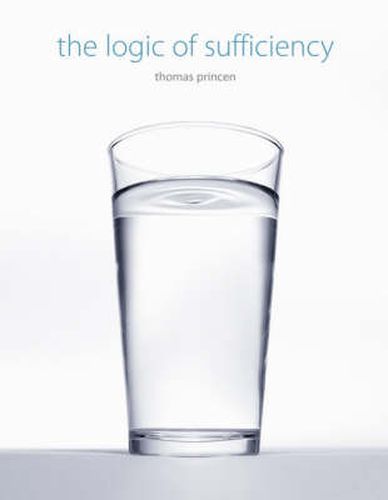Readings Newsletter
Become a Readings Member to make your shopping experience even easier.
Sign in or sign up for free!
You’re not far away from qualifying for FREE standard shipping within Australia
You’ve qualified for FREE standard shipping within Australia
The cart is loading…






Builds sufficiency as a principle for sustainability with concepts and case studies and shows how seeking enough when more is possible is intuitive, rational and ethical. What if modern society put a priority on the material security of its citizens and the ecological integrity of its resource base? What if it took ecological constraint as a given, not a hindrance but a source of long-term economic security? How would it organise itself, structure its industry, shape its consumption? Across time and across cultures, people actually have adapted to ecological constraint. They have changed behaviour; they have built institutions. And they have developed norms and principles for their time. Today’s environmental challenges - at once global, technological, and commercial - require new behaviours, new institutions, and new principles. In this highly original work, Thomas Princen builds one such principle: sufficiency. Sufficiency is not about denial, not about sacrifice or doing without. Rather, when resource depletion and overconsumption are real, sufficiency is about doing well. It is about good work and good governance; it is about goods that are good only to a point. With examples ranging from timbering and fishing to automobility and meat production, Princen shows that sufficiency is perfectly sensible and yet absolutely contrary to modern society’s dominant principle, efficiency. He argues that seeking enough when more is possible is both intuitive and rational - personally, organisationally and ecologically rational. And under global ecological constraint, it is ethical. Over the long term, an economy - indeed a society–cannot operate as if there’s never enough and never too much.
$9.00 standard shipping within Australia
FREE standard shipping within Australia for orders over $100.00
Express & International shipping calculated at checkout
Stock availability can be subject to change without notice. We recommend calling the shop or contacting our online team to check availability of low stock items. Please see our Shopping Online page for more details.
Builds sufficiency as a principle for sustainability with concepts and case studies and shows how seeking enough when more is possible is intuitive, rational and ethical. What if modern society put a priority on the material security of its citizens and the ecological integrity of its resource base? What if it took ecological constraint as a given, not a hindrance but a source of long-term economic security? How would it organise itself, structure its industry, shape its consumption? Across time and across cultures, people actually have adapted to ecological constraint. They have changed behaviour; they have built institutions. And they have developed norms and principles for their time. Today’s environmental challenges - at once global, technological, and commercial - require new behaviours, new institutions, and new principles. In this highly original work, Thomas Princen builds one such principle: sufficiency. Sufficiency is not about denial, not about sacrifice or doing without. Rather, when resource depletion and overconsumption are real, sufficiency is about doing well. It is about good work and good governance; it is about goods that are good only to a point. With examples ranging from timbering and fishing to automobility and meat production, Princen shows that sufficiency is perfectly sensible and yet absolutely contrary to modern society’s dominant principle, efficiency. He argues that seeking enough when more is possible is both intuitive and rational - personally, organisationally and ecologically rational. And under global ecological constraint, it is ethical. Over the long term, an economy - indeed a society–cannot operate as if there’s never enough and never too much.